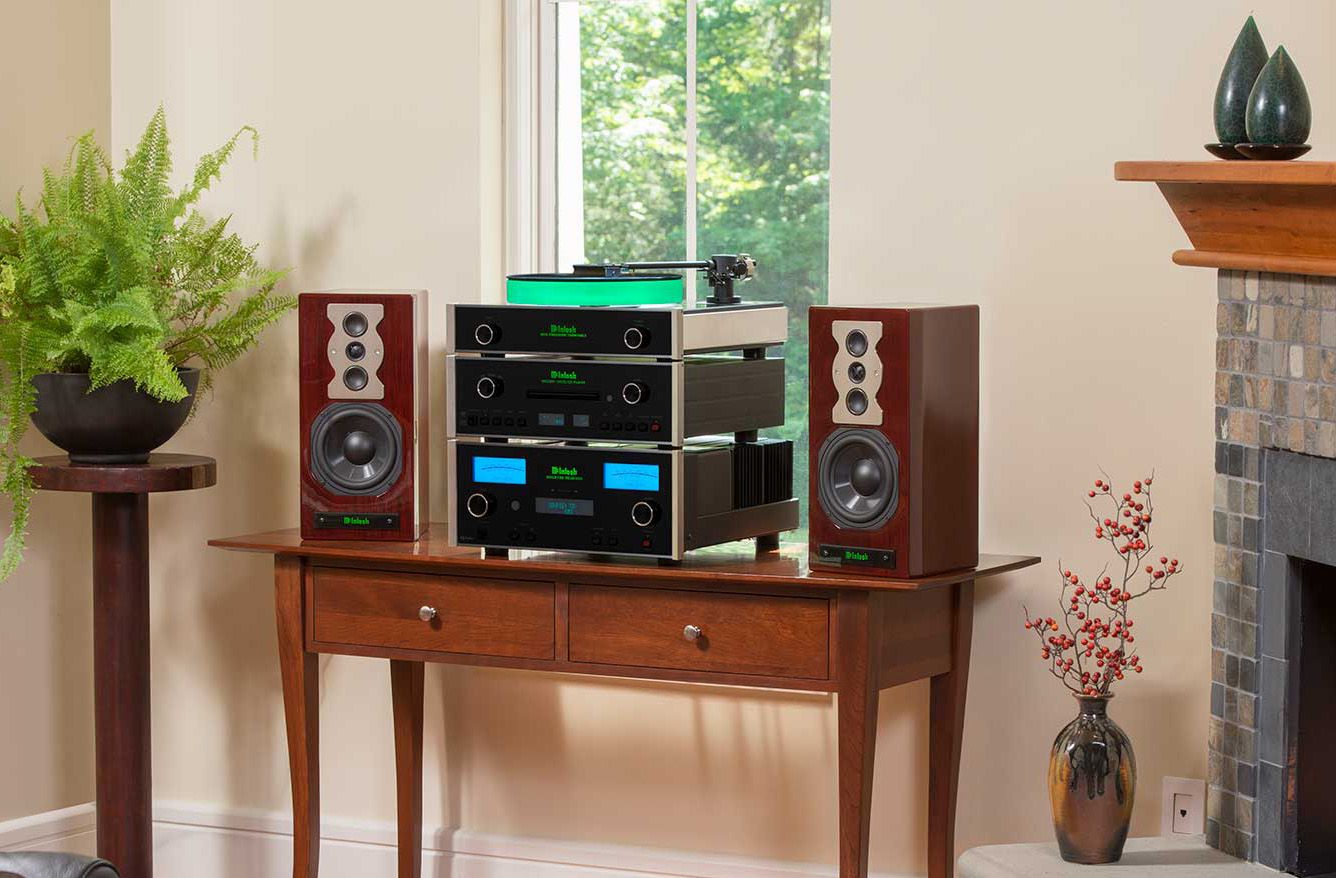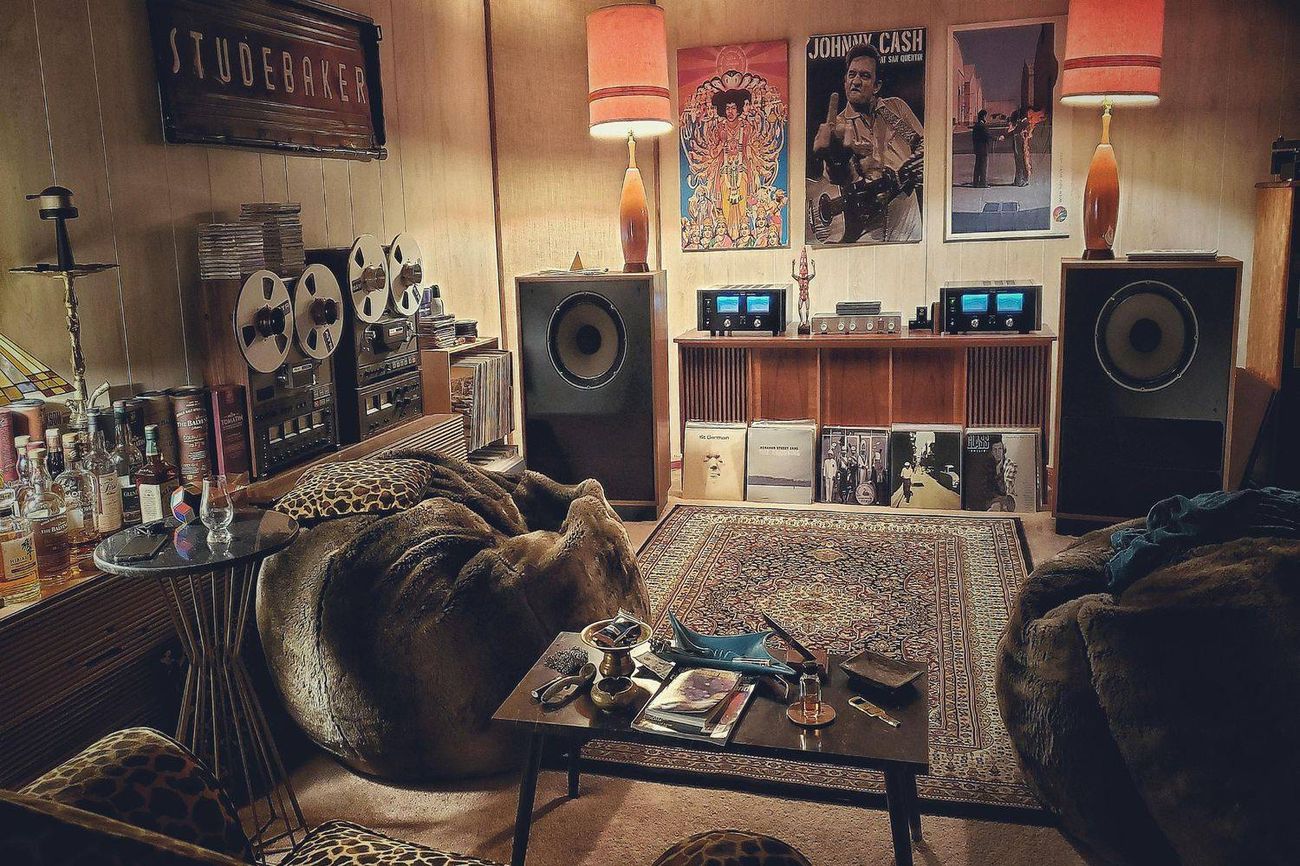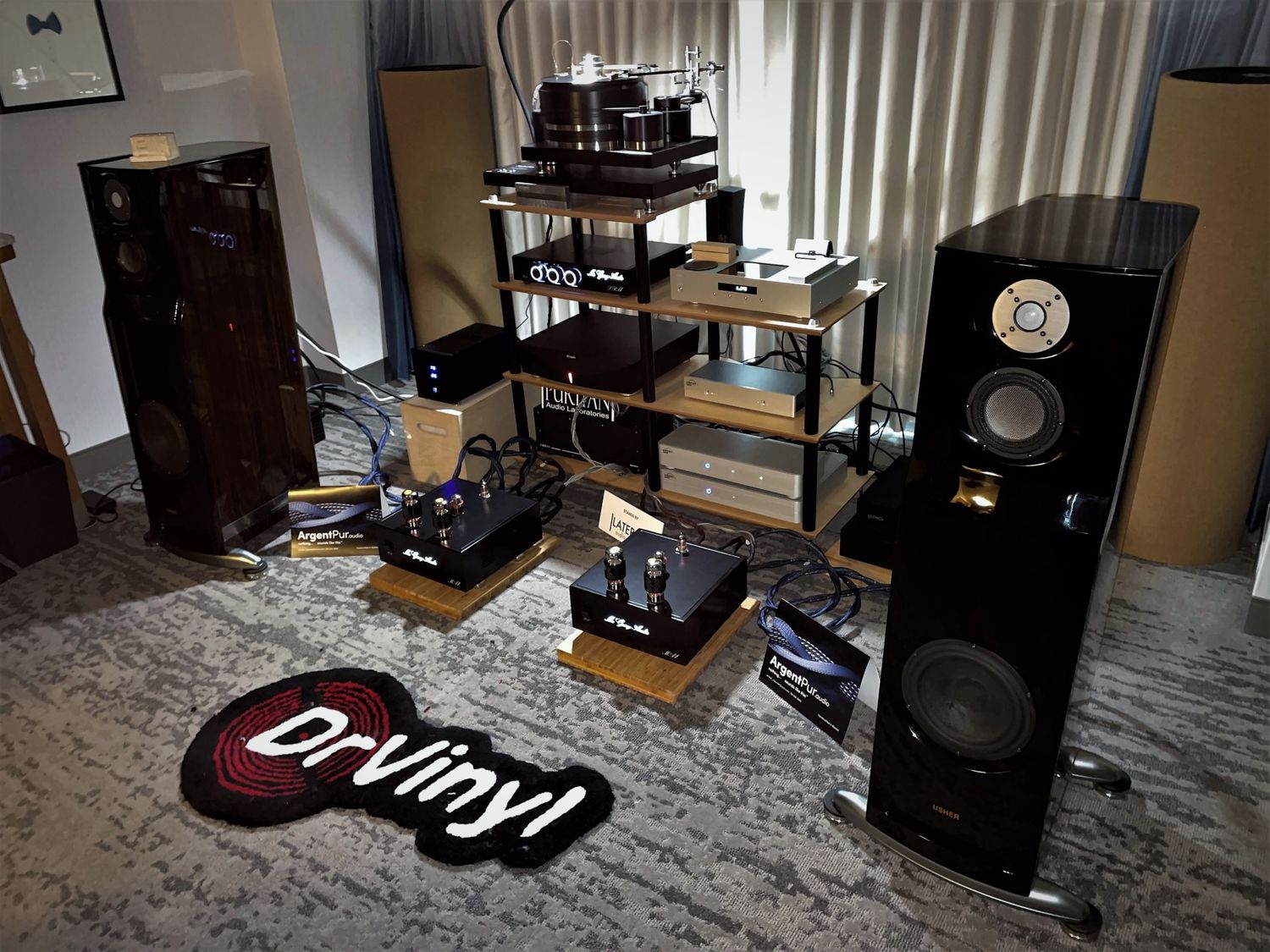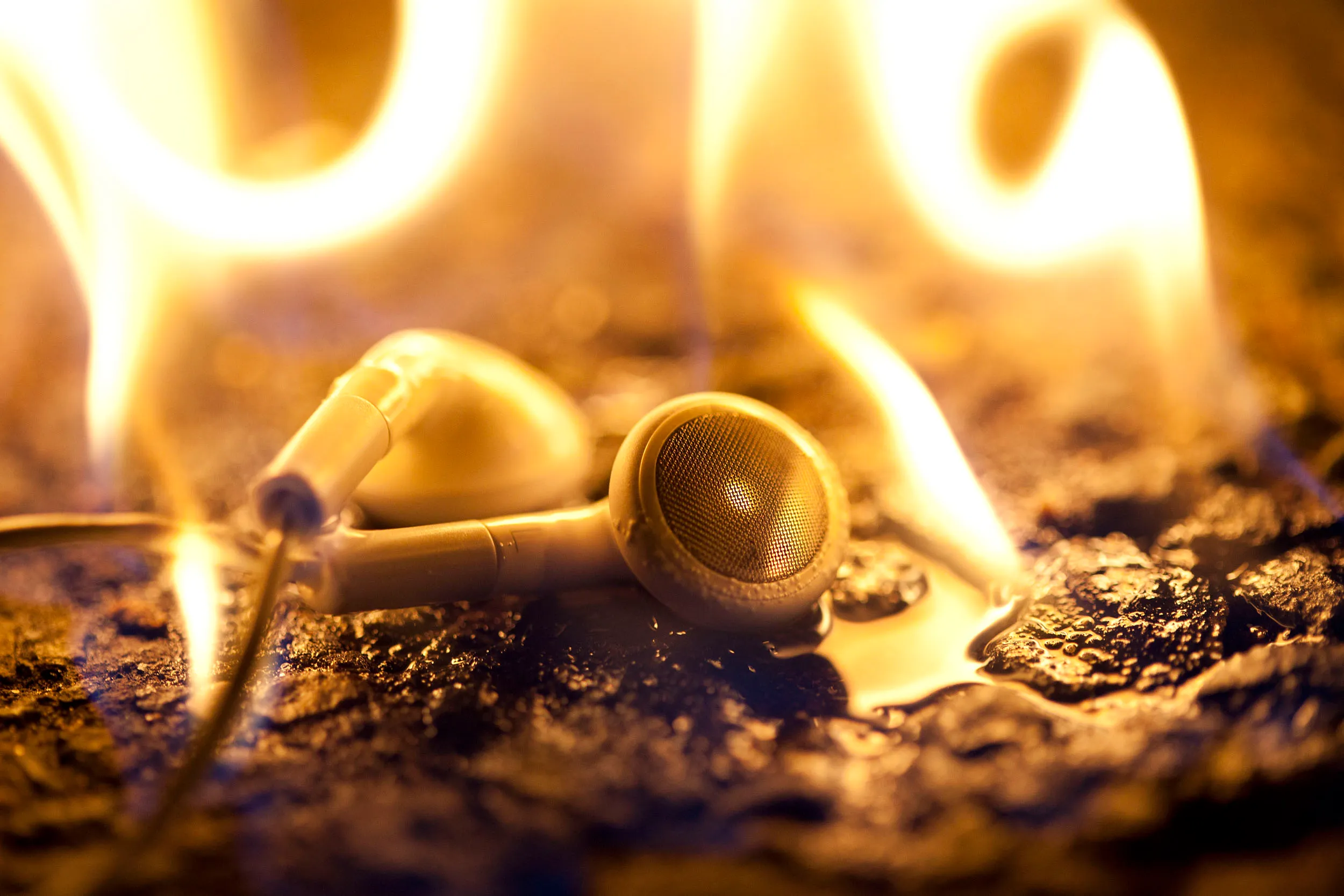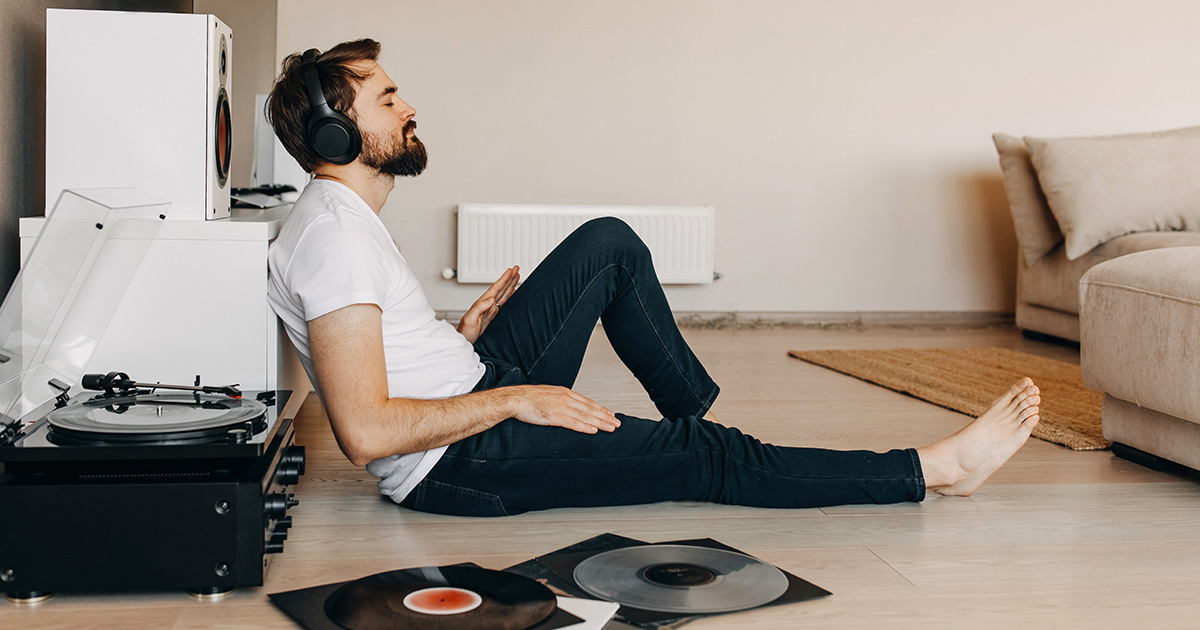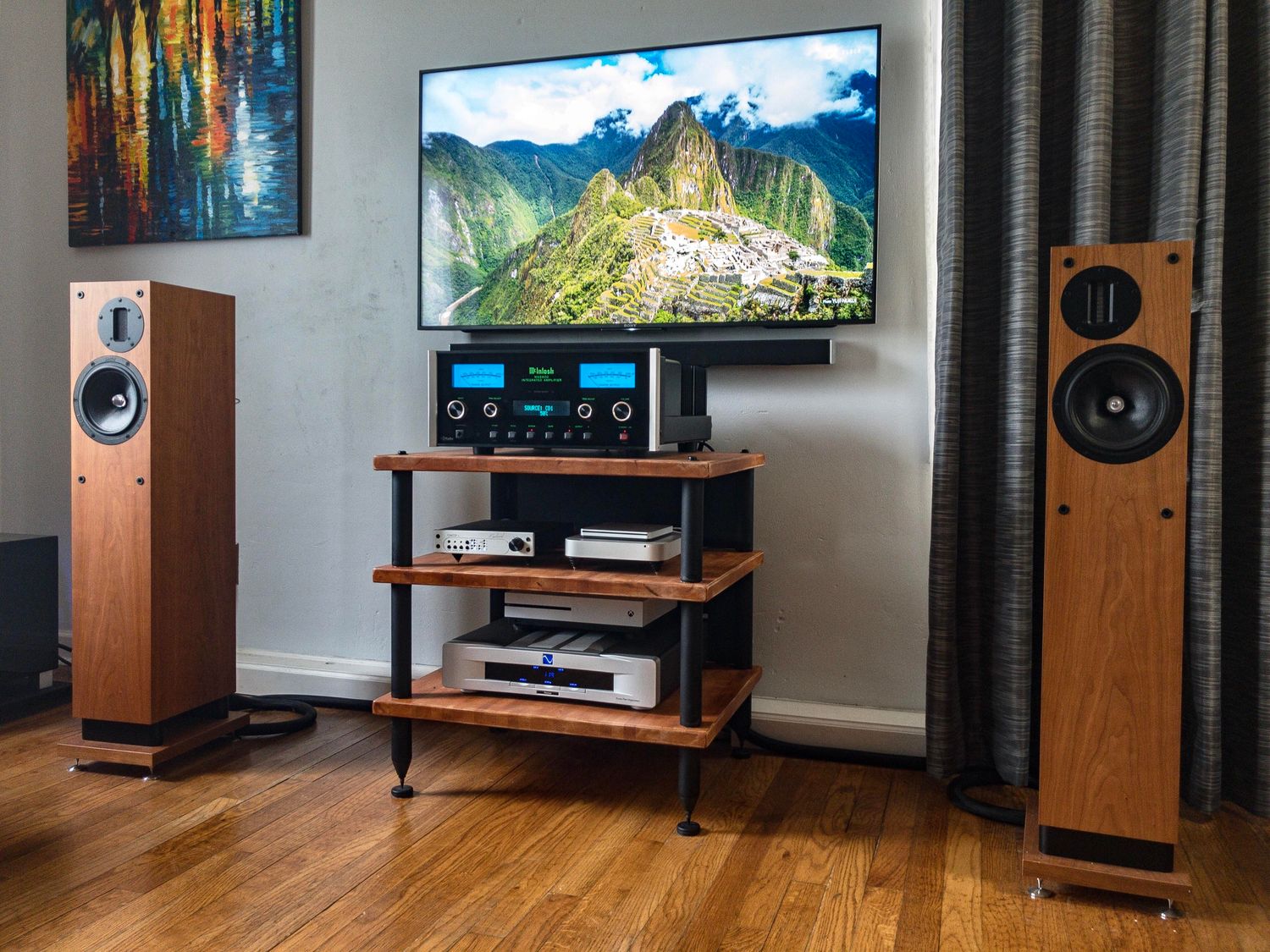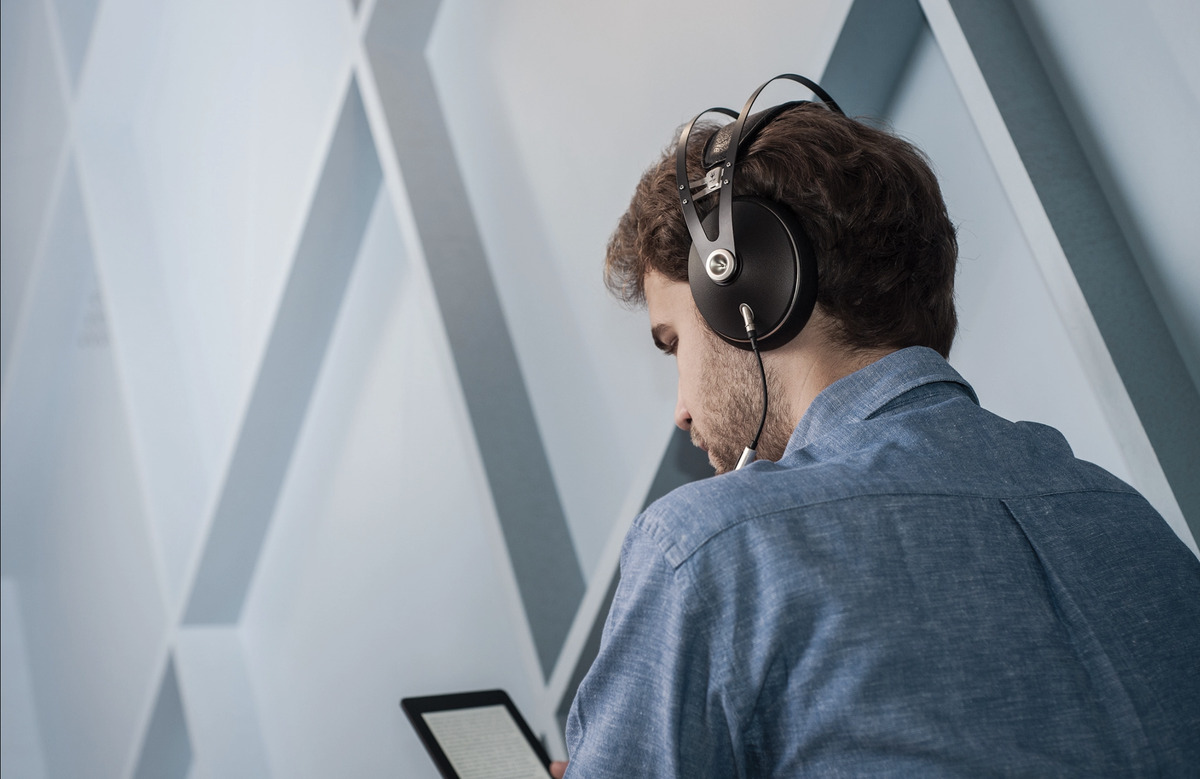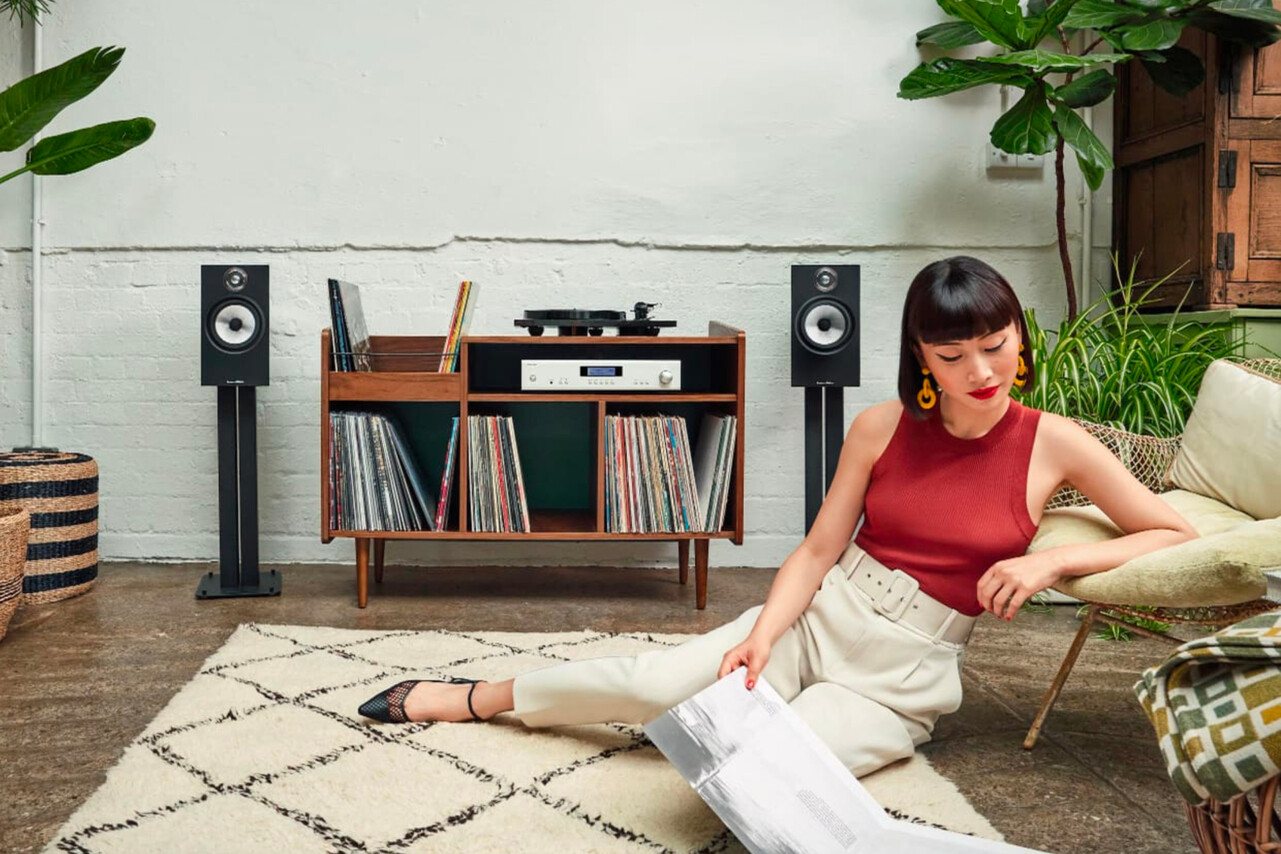Home>Production & Technology>Audiophile>What Is An Audiophile
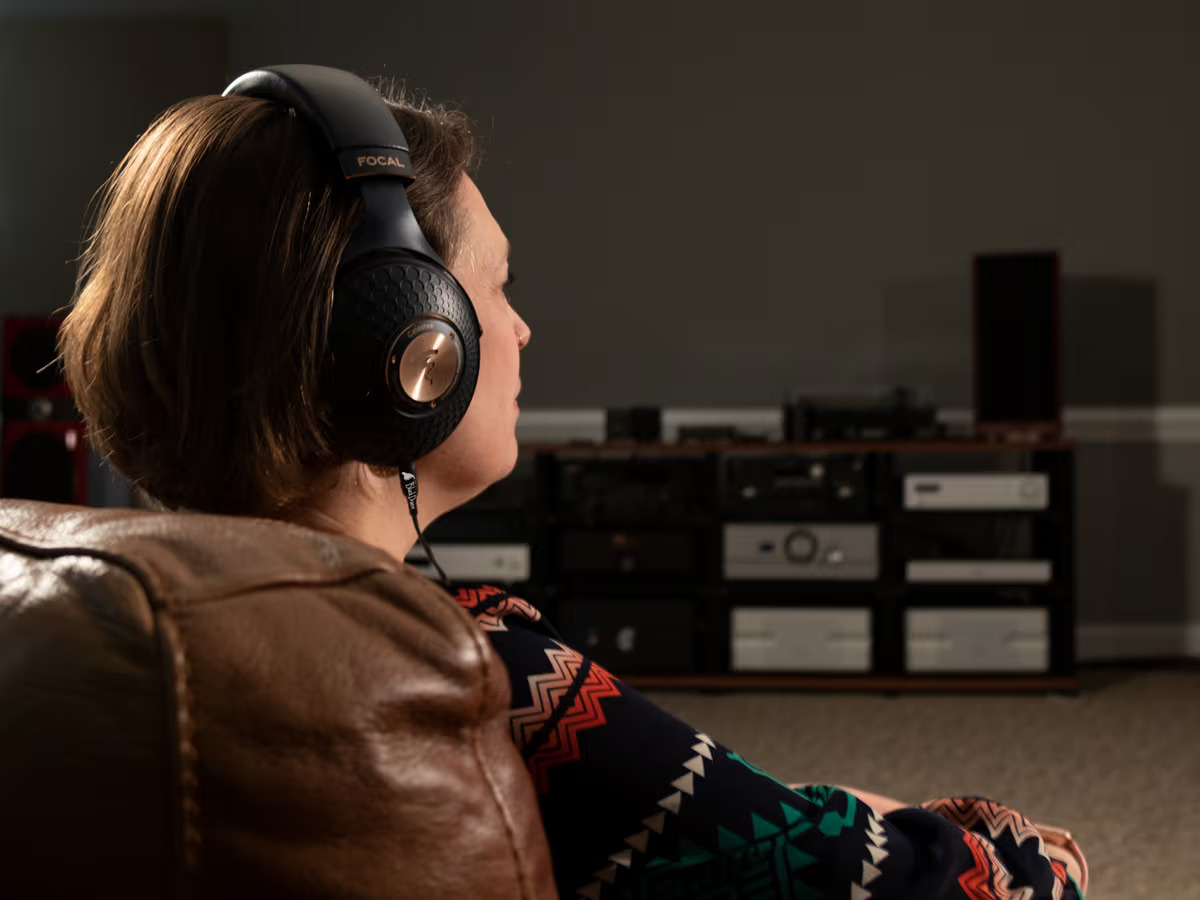

Audiophile
What Is An Audiophile
Modified: February 18, 2024
Discover what it means to be an audiophile and immerse yourself in the world of high-quality sound. Explore the passion of true music enthusiasts and elevate your listening experience.
(Many of the links in this article redirect to a specific reviewed product. Your purchase of these products through affiliate links helps to generate commission for AudioLover.com, at no extra cost. Learn more)
Table of Contents
Introduction
Welcome to the world of audiophiles, where music lovers go to great lengths to achieve the ultimate listening experience. Audiophiles are a dedicated group of individuals who crave the highest quality sound reproduction in their pursuit of sonic perfection. They take great pleasure in immersing themselves in the music, dissecting every note, and experiencing the subtleties and nuances that lesser audio systems may miss.
But what exactly does it mean to be an audiophile? And what sets them apart from casual listeners? In this article, we will explore the world of audiophiles, their characteristics, their dedication to high-quality audio, and the myths and misconceptions surrounding their lifestyle.
At its core, being an audiophile is all about the appreciation of music and the desire to hear it in the best possible way. This goes beyond simply enjoying a catchy tune; it involves a deep connection to the artistry and craftsmanship of the music itself. Audiophiles seek to recreate the recording as faithfully as possible, allowing the listener to experience the intended emotion and impact of the music.
Audiophiles are discerning listeners who demand excellence in every aspect of their audio setup. From the source of the music, to the amplification, to the speakers or headphones, every component must be carefully chosen to achieve the highest level of fidelity. They are constantly on a quest for the clearest, most accurate reproduction of sound, driven by a passion for experiencing music at its very best.
While some may view audiophiles as perfectionists or snobs, the truth is that they simply have a deep appreciation for the technical aspects of audio reproduction. They understand the importance of quality components and meticulously crafted audio equipment in delivering a truly remarkable listening experience.
Join us as we delve into the world of audiophiles and uncover the secrets behind their unwavering pursuit of sonic excellence. From the characteristics that define them, to the equipment they use, and the techniques they employ, we will explore the fascinating world of audiophiles and gain a better understanding of their passion for high-quality audio.
Definition of Audiophile
Before we dive deeper into the world of audiophiles, let’s start by defining what exactly an audiophile is. An audiophile is an individual who has a deep passion and appreciation for high-quality sound reproduction. They strive to achieve the most accurate and faithful reproduction of music, aiming to recreate the original recording as closely as possible.
Unlike casual listeners who may be content with low-quality audio from their smartphone or computer speakers, audiophiles prioritize the quality and fidelity of their audio systems. They invest time, effort, and often significant amounts of money into building a setup that meets their high standards. For them, the listening experience is not just about the music itself but about experiencing it in the most immersive and authentic way.
An audiophile is not limited to a specific genre or type of music; their passion extends across all genres, from classical to jazz, rock to electronic, and everything in between. It’s their unwavering dedication to achieving the best possible sound that sets them apart.
Audiophiles are known for their discerning ears, able to pick up on even the smallest nuances in a recording. They seek out every detail, from the delicate harmonics of a guitar string to the subtle reverb in a vocalist’s voice. It is this attention to detail that allows them to fully appreciate the artistry and craftsmanship that goes into creating music.
Furthermore, audiophiles understand the importance of the entire audio chain. From the quality of the audio source and the components used in the amplification process, to the speakers or headphones that deliver the sound, every element is carefully chosen to ensure the highest level of audio quality. They understand that each component in the audio chain contributes to the overall fidelity and strive for excellence in each step.
In summary, an audiophile is someone who seeks the utmost in sound quality, with a deep appreciation for music and sound reproduction. They go beyond casual listening, dedicating their time, resources, and expertise to create a listening experience that is unparalleled. It is this passion for high-quality audio that drives the audiophile community and sets them apart from the average listener.
Characteristics of Audiophiles
Audiophiles possess a unique set of characteristics that distinguish them from casual music listeners. These traits and qualities contribute to their unwavering pursuit of sonic excellence. Let’s explore some of the key characteristics of audiophiles.
- Precision and Attention to Detail: Audiophiles have an exceptional ability to pick up on the smallest details in a piece of music. They can discern subtle changes in tone, dynamics, and spatial imaging, allowing them to fully appreciate the intricacies of a recording. Their precision and attention to detail set them apart from casual listeners who may not notice these nuances.
- Passion for High-Quality Sound: Audiophiles are driven by a deep passion for high-quality sound reproduction. They believe that music should be experienced in its purest form, without any compromise in fidelity. This passion fuels their dedication to invest in premium audio equipment and meticulously set up their systems, always striving for the best audio experience possible.
- Continuous Pursuit of Perfection: Audiophiles are always on the quest for perfection. They are never fully satisfied and constantly seek ways to improve their audio systems. Whether it’s upgrading components, fine-tuning speaker placement, or experimenting with different cables, they are relentless in their pursuit of achieving the ultimate audio fidelity.
- Technical Knowledge: Audiophiles possess a deep understanding of audio technology and the principles of sound reproduction. They are well-versed in concepts such as frequency response, impedance, distortion, and signal-to-noise ratio. This technical knowledge allows them to make informed decisions when selecting audio equipment and optimizing their setups.
- Active Listener: Audiophiles actively engage with the music they listen to. They don’t just have music playing in the background; they give their full attention to the nuances of each track. They may listen critically, analyzing the soundstage and imaging, or simply revel in the emotion and artistry conveyed through the music. Their active listening enhances their overall appreciation of the music.
- Open-Mindedness: While audiophiles have their preferences and biases, they are also open-minded when it comes to experiencing new music and audio equipment. They are willing to explore different genres, artists, and recording techniques to broaden their musical horizons. They are receptive to trying new gear and methodologies to continuously improve their audio setups.
It’s important to note that not all audiophiles possess the same combination of characteristics, as individuals may lean more towards certain traits than others. However, these general characteristics are commonly found within the audiophile community, driving their passion for high-fidelity audio reproduction.
The Audiophile Lifestyle
The audiophile lifestyle is characterized by a deep commitment to achieving the highest quality audio experience. It goes beyond simply owning high-end audio equipment; it encompasses a set of practices and habits that audiophiles incorporate into their daily lives. Let’s explore some key aspects of the audiophile lifestyle.
- Curating Music Collections: Audiophiles value the quality of their music collection and invest time in curating it. They seek out high-resolution audio files, vinyl records, or CDs that offer superior sound quality. They carefully organize and maintain their collection to ensure easy access to their favorite recordings and albums.
- Optimizing Listening Spaces: Audiophiles understand the importance of creating an optimal listening environment. They pay attention to room acoustics, placing sound-absorbing panels or diffusers to reduce unwanted reflections. They may also invest in specialized furniture, such as audio racks and speaker stands, to enhance sound quality. The goal is to create an immersive and accurate soundstage.
- Attending Live Performances: Audiophiles often have a deep appreciation for live music. They frequently attend concerts, performances, or even intimate live sessions to experience music firsthand. Being present in a live setting allows them to connect with the raw energy and emotion that can be captured in a live performance.
- Engaging in Critical Listening Sessions: Audiophiles set aside dedicated time for critical listening sessions. During these sessions, they focus solely on the music, paying close attention to the nuances and details. They analyze the tonal balance, imaging, and dynamics, often taking notes to remember their findings. Critical listening sessions allow them to fully immerse themselves in the music and evaluate the performance of their audio systems.
- Sharing Knowledge and Experiences: Audiophiles often engage in online forums, social media groups, or local audio clubs to share their knowledge and experiences. They discuss equipment, music recommendations, and troubleshooting tips. These communities provide a platform for audiophiles to connect and exchange ideas, further enriching their understanding of audio technology and the music listening experience.
- Continuous Learning: The pursuit of audio excellence is an ongoing journey for audiophiles. They stay up to date with the latest advancements in audio technology, attending workshops, seminars, or reading industry publications. They are constantly seeking new knowledge and techniques to refine their listening experience.
The audiophile lifestyle is driven by a desire to fully immerse oneself in the art of music. It is a dedication to achieving the purest and most faithful reproduction of sound possible. From curating collections to optimizing listening spaces, audiophiles strive for a holistic approach that elevates their music listening experience to new heights.
Audiophile Equipment
A key aspect of the audiophile experience is the careful selection and use of high-quality audio equipment. Audiophiles are known for their dedication to sourcing the best components that deliver exceptional sound reproduction. Let’s explore some of the essential equipment that audiophiles commonly use.
- Source Components: The source component is where the audio signal originates. Audiophiles often opt for high-quality sources like dedicated CD players, turntables for vinyl records, or digital music players capable of playing high-resolution audio files. These sources ensure that the audio signal starts with the best possible quality.
- Amplifiers: Amplifiers play a critical role in powering speakers or headphones and enhancing the audio signal. Audiophiles favor dedicated power amplifiers that provide clean and accurate amplification, preserving the details and dynamics of the music. They may choose between solid-state amplifiers known for their low distortion or tube amplifiers praised for their warm and musical sound signature.
- Speakers: The choice of speakers is crucial for achieving an immersive and accurate listening experience. Audiophiles prioritize speakers that can reproduce a wide frequency range with high precision and clarity. They may opt for floor-standing speakers, bookshelf speakers, or even high-end studio monitors, depending on their listening space and personal preferences.
- Headphones: For personal listening, headphones play a vital role in the audiophile setup. They allow for an intimate and detailed listening experience without disturbing others. Audiophiles seek headphones that offer a wide soundstage, accurate imaging, and a neutral frequency response for a transparent and natural sound reproduction.
- DACs (Digital-to-Analog Converters): DACs are responsible for converting digital audio signals into analog signals that can be amplified and heard. Audiophiles often invest in high-quality external DACs to ensure optimal signal conversion and minimize any potential degradation in audio quality.
- Cables and Interconnects: While some may view cables as a controversial topic, audiophiles pay attention to the quality of cables and interconnects used in their systems. They believe that well-constructed cables can have a subtle impact on signal transmission and preserving the integrity of the audio signal.
It’s worth noting that although audiophile equipment often comes at a higher price point, it’s the meticulous attention to detail, craftsmanship, and quality control that sets them apart. Audiophiles understand that investing in high-quality equipment allows them to recreate the intended sound reproduction and fully appreciate the artistry of music.
Audiophile Techniques
Audiophiles employ various techniques and practices to optimize their listening experience and extract the most from their audio systems. These techniques can range from fine-tuning their equipment setup to utilizing specific listening strategies. Let’s explore some common audiophile techniques:
- Room Acoustics: Audiophiles understand the impact of room acoustics on sound quality. They may use techniques like bass traps, diffusers, or absorbers to minimize unwanted reflections and create a more balanced listening environment. Additionally, they may experiment with speaker placement, aiming for an optimal soundstage and imaging.
- Burn-In and Component Optimization: Audiophiles often believe that audio equipment benefits from a burn-in period. They allow new components, such as speakers or headphones, to play continuously for a certain duration to “break them in” and achieve their optimal performance. This practice is thought to stabilize and improve the sound quality over time.
- Audio Upgrades and Modifications: To enhance their audio systems, audiophiles may explore upgrading components or even modifying their equipment. This can involve replacing internal cables, upgrading capacitors, or tweaking circuitry to improve audio performance. Such upgrades and modifications are aimed at achieving a more refined and personalized sound signature.
- Critical Listening: Audiophiles engage in critical listening sessions to fully immerse themselves in the music. They may listen for specific elements like imaging, soundstage, dynamics, and tonal balance. By actively focusing on these aspects, they can assess the strengths and weaknesses of their system and make informed decisions about any changes or upgrades.
- Audio Calibration: Calibration is an essential technique that audiophiles use to ensure accurate audio reproduction. They may utilize professional calibration tools or software to measure and adjust factors such as frequency response, phase alignment, and speaker positioning. This meticulous calibration helps achieve a more neutral and precise sound reproduction.
- Quality Audio Formats: Audiophiles prefer high-resolution audio formats to preserve the detail and dynamic range of the original recording. They often opt for lossless formats like FLAC or ALAC, which offer superior audio quality compared to compressed formats like MP3. Using high-quality audio formats ensures that they experience the music with minimal loss of fidelity.
These audiophile techniques showcase the dedication and attention to detail that audiophiles bring to their pursuit of sonic excellence. By implementing these practices, they strive to optimize their listening experience and achieve the highest level of audio quality from their systems.
Common Misconceptions about Audiophiles
Audiophiles, with their passion for high-quality sound reproduction, can sometimes be misunderstood or subject to misconceptions. It’s important to dispel these misconceptions to gain a better understanding of the audiophile community. Let’s address some common misconceptions:
- Audiophiles are Snobbish: One major misconception is that audiophiles are snobbish or elitist. While they may have strong opinions about audio equipment and sound quality, it stems from their passion for the music and the desire to hear it as it was intended. They are often eager to share their knowledge and experiences with others, rather than looking down on those who may not share the same level of enthusiasm.
- Audiophile Equipment is Inaccessible: It is often assumed that the equipment used by audiophiles is prohibitively expensive and inaccessible to the average listener. While high-end audio gear can indeed come with a higher price tag, there are also options available at more affordable price points. Audiophiles value quality and performance, but that doesn’t mean there aren’t options for those on a budget. It’s a matter of prioritizing and choosing the best equipment within one’s means.
- Audiophiles Only Listen to a Certain Genre: Another misconception is that audiophiles limit themselves to a specific genre of music. In reality, audiophiles appreciate a wide range of music genres and styles. Their emphasis is on experiencing the music in the highest quality possible, regardless of the genre. They may have preferences, but their love for music spans across various styles and artists.
- Audiophiles Cannot Enjoy Music on Low-Quality Systems: Contrary to popular belief, audiophiles can still enjoy music on low-quality systems. While they may have a preference for high-fidelity audio, they can appreciate the essence and emotion of music regardless of the playback system. Audiophiles may strive for the best sound quality, but they can still find enjoyment in music on any platform or device.
- Audiophiles are Only Concerned with Specs: It is often assumed that audiophiles solely focus on technical specifications and measurements. While they may have a technical understanding of audio equipment, their ultimate goal is to create an immersive and emotionally engaging listening experience. While specifications can provide useful information, audiophiles also rely on their ears to evaluate the overall audio performance.
By dispelling these misconceptions, we can recognize that audiophiles are individuals driven by their passion for music and high-quality sound reproduction. They are enthusiastic about sharing their knowledge and experiences, and their love for music extends beyond the technical aspects of audio equipment.
Conclusion
The world of audiophiles is a fascinating realm where the pursuit of sonic perfection takes center stage. Audiophiles are passionate individuals who invest time, effort, and resources into achieving the highest quality audio experience. They possess a deep appreciation for music and seek to recreate the artist’s vision with utmost fidelity.
Throughout this article, we have explored the definition of an audiophile and the characteristics that set them apart. We have dived into the audiophile lifestyle, which encompasses curated music collections, optimized listening spaces, and a commitment to critical listening sessions. We have also discussed the importance of audiophile equipment, including sources, amplifiers, speakers, headphones, and DACs.
Additionally, we have touched upon the techniques audiophiles employ, such as room acoustics optimization, burn-in periods, audio upgrades, and critical listening sessions. Lastly, we have debunked common misconceptions surrounding audiophiles, emphasizing their openness, appreciation for all genres of music, and their ability to find enjoyment in various playback systems.
In conclusion, being an audiophile means embracing the pursuit of sonic excellence, driven by a deep love for music and a desire to experience it in its purest form. It involves meticulous attention to detail, continuous learning, and an unwavering commitment to achieving the highest level of sound reproduction. Whether through carefully curated equipment setups, critical listening techniques, or engaging in audiophile communities, audiophiles are dedicated to elevating their music listening experiences.
So, whether you’re already an audiophile or simply curious about the world of high-fidelity audio, we hope this article has provided insight into this passionate community. Now, it’s time to put on your favorite album, immerse yourself in the music, and perhaps discover a new level of appreciation for the artistry and craftsmanship that goes into creating the music we love.

